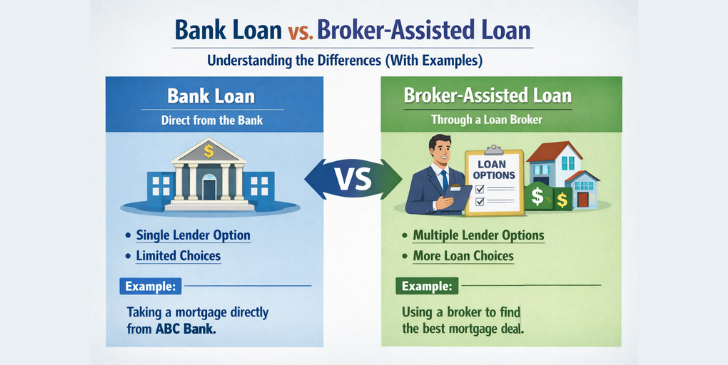Hidden Costs of Buying A Home | Needs To Remember
- Home
- /
- Hidden Costs of Buying A Home | Needs To Remember

- 01 Mar, 2024
Categories General
Hidden Costs of Buying A Home | Needs To Remember
So you are finally buying a house and you have all the costs covered. But, wait! Ask yourself again, “Are you really financially prepared to cover all the costs required for buying a property?”
Well, isn’t this an eyebrow-raising question?
House buying is not only about paying for the price tag that the property comes with. There are a number of hidden costs like the mortgage interest rates, the cost of repairs, cost of the general upkeep of the home, the ongoing council rates, and the list just keeps going on.
So, before you go ahead and calculate whether your house would be a good financial investment, you have to deduct these hidden costs from any increase in the price of your home over time.
Let’s go ahead and have a look at what are the types of costs involved when we go ahead with buying a house.
The Costs Involved
Before we go ahead, here is a small reminder- costs will vary depending on the provider and the state you’re buying the property in. So, here are the unseen costs of buying a home.
Government fees
Buying property also comes along with many government fees that include land transfer fees, registration fees, and government taxes. These fees are a combination of flat fees and variable charges that change with the price of the property. We should ensure to read the fee structures for our particular state so that we can understand all the charges that apply.
Stamp duty
The Stamp Duty fees differ for every state. This factor can add a very significant cost to the property that we are planning to purchase. First home owners may be eligible for reduced stamp duty fees in some states in Australia.
Body Corporate Fees
When buying a property that might have one or more owners such as in the case of strata title properties, a buyer might have to pay additional ongoing costs involved with the maintenance and insurance of the property. These fees include body corporate fees, contribution to sinking funds and liability insurance to cover any damage to the building and common property.
Legal Fees
We also have legal fees that need to be taken into consideration during a house purchase. These fees, again, vary by state, the legal professional chosen by us, and the size and complexity of the purchase. We can take the help of certain websites that are available to assist us in quickly receiving and comparing conveyancing quotes.
Inspection fees
When purchasing property, there are two main forms of inspection that are mostly recommended. To be able to get a building and pest inspection completed before a purchase will give us peace of mind about our new home.
- Building inspection – to ensure there are no structural problems
- Pest inspection – to ensure the house is free of pests and termites
Home loan costs
When purchasing a house there are a number of people whom we need to make payments to. One of these people is our home loan provider, whom we need to provide with both mortgage repayments and lender fees. Hence, when choosing a home loan it is essential to look into a variety of mortgage packages and study the fees that apply to each product. What kind of a loan do you require? Does it need to have many features or will a basic product with low-interest rate be sufficient to meet your needs?
Mortgage insurance
The Lender’s Mortgage Insurance (LMI) is another fee to take into account. The price for this fee also varies from institution to institution, mainly depending on the value, the type of loan chosen, and the amount of deposit saved. In the case of some loans, the LMI is obligatory, especially if we have less than 20% of deposit saved. LMI does not protect us from any financial loss, however, it protects the lender against a home selling for less than its real price.
Moving costs
When you buy house, you have to move. That is simple logic. This costs also need to be included when we think of buying a house, especially if we are going to move a long distance.
Other forgotten costs
Some other fees involved when buying property are the fees for utility connection or the transfer fees, which are paid for water connection, electricity, and gas. Occasionally these expenses are paid for but, it is always better to stay prepared just in case they are not.
Grants & other monetary help
Grants and concessions are another important features of home buying and they are available to a range of different purchasers, from nearly every state in Australia. The First home buyer grants are the main area where buying a home can be made easier. Another grant is available in South Australia, to people who are out to build new houses, whether they are first home buyers or not. A similar grant is available to non-first home buyers in the Northern Territory. Concessions and exemptions from stamp duty costs are also available in most states, for first home buyers and pensioners.
Over To You
When buying a house it’s important to construct a detailed budget that takes into account all the costs you could accrue. Revise it again and again till you are sure that there are no more unexpected costs which can alarm you at the last minute.
Homebuyers should be alert about every fee involved, which can range from nominal prices to significant ones. The hidden costs of buying a house are far more complex. So, if you are not prepared, you might take into consideration using our Property Buying Cost Calculator to evaluate the costs associated with the process.





































